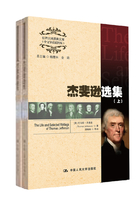
TO THE COUNT DE MOUSTIER
Paris, May 17, 1788
DEAR SIR, —I have at length an opportunity of acknowledging the receipt of your favors of February, and March the 14th, and congratulating you on your resurrection from the dead, among whom you had been confidently entombed by the newsdealers of Paris. I am sorry that your first impressions have been disturbed by matters of etiquette, where surely they should least have been expected to occur. These disputes are the most insusceptible of determination, because they have no foundation in reason. Arbitrary and senseless in their nature, they are arbitrarily decided by every nation for itself. These decisions are meant to prevent disputes, but they produce ten where they prevent one. It would have been better, therefore, in a new country, to have excluded etiquette altogether; or if it must be admitted in some form or other, to have made it depend on some circumstance founded in nature, such as the age or station of the parties. However, you have got over all this, and, I am in hopes, have been able to make up a society suited to your own dispositions. Your situation will doubtless be improved by the adoption of the new constitution, which I hope will have taken place before you receive this. I see in this instrument, a great deal of good. The consolidation of our government, a just representation, an administration of some permanence, and other features of great value, will be gained by it. There are, indeed, some faults, which revolted me a good deal in the first moment; but we must be contented to travel on towards perfection, step by step. We must be contented with the ground which this constitution will gain for us, and hope that a favorable moment will come for correcting what is amiss in it. I view in the same light, the innovations making here. The new organization of the judiciary department is undoubtedly for the better. The reformation of the criminal code, is an immense step taken towards good. The composition of the Plenary court is, indeed, vicious in the extreme;but the basis of that court may be retained, and its composition changed. Make of it a representative of the people, by composing it of members sent from the Provincial Assemblies, and it becomes a valuable member of the constitution. But it is said, the court will not consent to do this; the court, however, has consented to call the States General, who will consider the Plenary court but as a canvas for them to work on. The public mind is manifestly advancing on the abusive prerogatives of their governors, and bearing them down. No force in the government can withstand this, in the long run. Courtiers had rather give up power than pleasures; they will barter, therefore, the usurped prerogatives of the King, for the money of the people. This is the agent by which modern nations will recover their rights. I sincerely wish that in this country, they may be contented with a peaceable and passive opposition. At this moment, we are not sure of this, though as yet it is difficult to say what form the opposition will take. It is a comfortable circumstance, that their neighboring enemy is under the administration of a minister disposed to keep the peace. Engage in war who will, may my country long continue your peaceful residence, and merit your good offices with that nation, whose affections it is their duty and interest to cultivate.